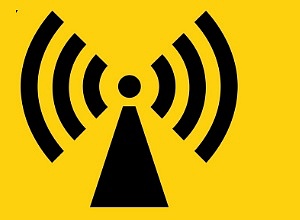Mystery illness suffered by US diplomats in Cuba was most likely caused by directed microwave radiation, concludes a report from the National Academies of Sciences, reports MedicalBrief. No blame is attributed but the NAAS report says research into the effects of pulsed radio frequency energy was carried out by the Soviet Union more than 50 years ago.
The illnesses first affected people at the US embassy in Havana in 2016-17. Staff and some of their relatives complained of symptoms ranging from dizziness, loss of balance, hearing loss, anxiety and something they described as "cognitive fog". It became known as "Havana syndrome". Canada also cut its embassy staff in Cuba after more than a dozen its employees reported similar symptoms.
The US accused Cuba of carrying out "sonic attacks", which it strongly denied, and the incident led to increased tension between the two nations. A 2019 US academic study found "brain abnormalities" in the diplomats who had fallen ill, but Cuba dismissed the report.
The report notes that with many of the staff in Cuba, "their case began with the sudden onset of a loud noise, perceived to have directional features, and accompanied by pain in one or both ears or across a broad region of the head, and in some cases, a sensation of head pressure or vibration, dizziness, followed in some cases by tinnitus, visual problems, vertigo, and cognitive difficulties.
"Other personnel attached to the US.Consulate in Guangzhou, China, reported similar symptoms and signs to varying degrees, beginning in the following year. As of June 2020, many of these personnel continue to suffer from these and/or other health problems. Multiple hypotheses and mechanisms have been proposed to explain these clinical cases, but evidence has been lacking, no hypothesis has been proven, and the circumstances remain unclear.
"The committee felt that many of the distinctive and acute signs, symptoms and observations reported by (government) employees are consistent with the effects of directed, pulsed radio frequency (RF) energy," the report reads.
"Studies published in the open literature more than a half-century ago and over the subsequent decades by Western and Soviet sources provide circumstantial support for this possible mechanism."
It observes there had been "significant research in Russia/USSR into the effects of pulsed, rather than continuous wave [radio frequency] exposures". It said that military personnel in "Eurasian communist countries" had been exposed to non-thermal radiation.
"The committee is left with a number of concerns. First, even though it was not in a position to assess or comment on how these DOS cases arose, such as a possible source of directed, pulsed RF energy and the exact circumstances of the putative exposures, the mere consideration of such a scenario raises grave concerns about a world with disinhibited malevolent actors and new tools for causing harm to others, as if the US government does not have its hands full already with naturally occurring threats.
"Because the committee was not able to assess specific scenarios involving malevolent actors, one strong suggestion is that follow-up studies on this topic be undertaken by subject-matter experts with proper clearance, including those who work outside the U.S. government, with full access to all relevant information. Second, the committee was concerned about the possibility of future new cases among DOS or other US government employees working overseas, either similar or dissimilar to these, and the ability of the US government to recognize and respond to these cases in a coordinated and effective manner.
"The next event may be even more dispersed in time and place, and even more difficult to recognize quickly. Toward this end, the committee offers a number of observations, best practices, and recommendations for clinical management, surveillance, and a systematic response in anticipation of future health events. These observations and recommendations should be reviewed and acted on now.
"It is imperative that the United States recognize and quickly respond to future cases with a well-coordinated, multi-disciplinary, science-based investigation and effective interventions. Finally, the committee is concerned about how best to manage the continuing care of those already affected, and how to strengthen the nation’s commitment to the health and well-being of those who serve the country overseas. Both of these priorities need and deserve additional attention and resources."
[link url="https://www.nap.edu/catalog/25889/an-assessment-of-illness-in-us-government-employees-and-their-families-at-overseas-embassies"]View or download for free the full US NAAS report[/link]

